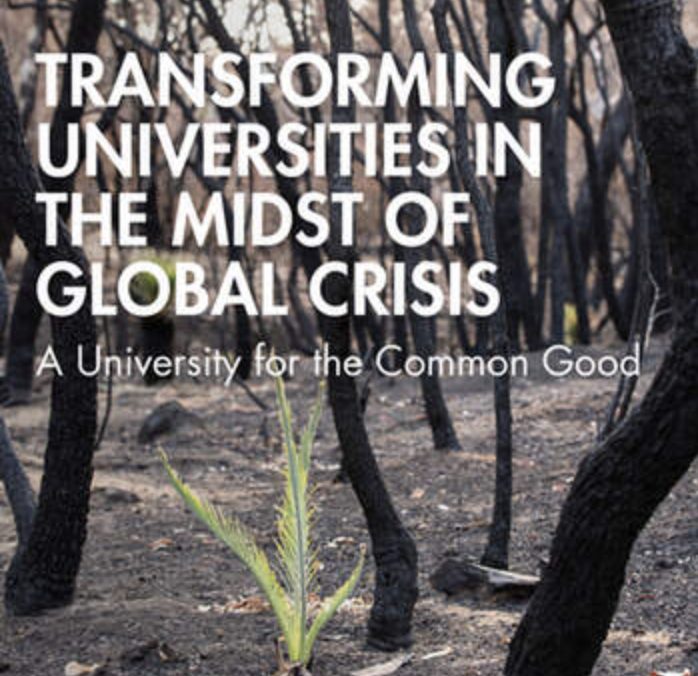Internal Event
Imagining a University for the Common Good Reading Group (Session 2)
October 13, 2025 12:00 PM – 1:00 PM
Online

A Critical Conversations Event
This reading group invites faculty to engage deeply with urgent questions about the purpose and future of higher education in times of intersecting global crises through critical engagement with the book Transforming Universities in the Midst of Global Crisis: A University for the Common Good (by Richard Hil, Kristen Lyons, and Fern Thompsett; available with Pratt login through the Pratt Libraries!).
Central themes we will consider include:
– How the foundational logics of colonialism continue to shape university structures, knowledge systems, and relationships today;
– Understanding climate change, COVID-19, and systemic inequities not as external threats but as revealing the “glitch” in current systems, opening space for reimagining;
– Moving from minor adjustments to radical transformation and exploring what it means to “hospice” failing systems while nurturing alternatives;
– Examining concrete examples of decolonizing, democratizing, and regenerative approaches already emerging in educational contexts.
Join us in exploring what a university truly committed to the common good might look like!
We will meet weekly on Mondays at 12pm starting October 6 and ending November 10. Faculty can also engage with the text and with other participants asynchronously through a Canvas course with Perusall integrated.
Session 2
Reading:
– Chapter 4 – Decolonising Higher Education
This chapter examines how universities have served as instruments of settler colonialism from their origins, tracing the “education-based mode of study” from 14th-century Europe to contemporary neoliberal institutions. We’ll explore how current university structures perpetuate colonial epistemologies through the subject/object binary, property paradigms that commodify knowledge, and “inclusion” rhetoric that often masks deeper structural violence. The discussion will consider what genuine decolonization might require, including Indigenous intellectual sovereignty, land repatriation, and fundamentally different ways of understanding teaching, learning, and knowledge itself.
This event is part of Critical Conversations: creating space for and educating one another about our multiple cultural contexts, activism, civil discourse, and academic engagement.